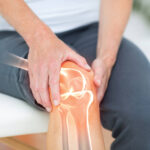Fatty liver disease, often a silent ailment lurking in the background, can have significant health implications if left unchecked. This condition, characterized by excess fat in the liver, is increasingly prevalent due to rising obesity rates and sedentary lifestyles. However, the subtlety of its symptoms means it often goes undiagnosed. Understanding and recognizing these symptoms early on is vital for taking action to reverse the condition and prevent serious liver damage. In this comprehensive guide, we will explore 12 often-missed warning signs of fatty liver disease, detailing not only how to reverse them but also when it’s critical to seek medical attention.
The importance of early detection cannot be overstated. Fatty liver disease can progress to more serious conditions like liver cirrhosis or liver cancer if left untreated. Recognizing these warning signs and making lifestyle changes can significantly alter the disease’s trajectory. This article aims to empower you with the knowledge to identify potential symptoms of fatty liver disease and understand the appropriate measures to take, including when to consult a healthcare professional.
Why the Symptoms of Fatty Liver Disease Can Be Overlooked
Fatty liver disease, especially in its early stages, is notorious for being a silent condition with symptoms that are easily overlooked. There are several reasons why these signs often go unnoticed or are attributed to other causes:
Subtle Onset: Many symptoms of fatty liver disease, like mild abdominal discomfort or slight fatigue, are subtle and can develop gradually. This slow onset often leads to the symptoms being normalized or attributed to everyday stress and fatigue.
Non-Specific Symptoms: Symptoms such as fatigue, weight gain, and itchy skin are non-specific and can be associated with a variety of other common conditions. This lack of specificity makes it challenging to immediately link these symptoms to fatty liver disease without further medical investigation.
Absence of Pain: In many cases, fatty liver disease doesn’t cause pain, which is often a key trigger for seeking medical attention. The absence of pain can lead individuals to believe that nothing is seriously wrong.
Overlap with Lifestyle Factors: Symptoms like weight gain and high cholesterol are often associated with lifestyle factors such as diet and exercise habits. This can lead to an assumption that these issues are solely lifestyle-related, overlooking the possibility of an underlying condition.
Misattribution to Aging: Some symptoms, such as fatigue and cognitive changes, may be mistakenly attributed to the normal aging process, especially in older adults.
Lack of Awareness: General lack of public awareness about fatty liver disease and its symptoms contributes to the condition often going unrecognized. Without adequate knowledge, individuals and sometimes even healthcare providers may fail to connect the dots between the symptoms and the liver’s health.
Asymptomatic in Early Stages: In its initial stages, fatty liver disease may be entirely asymptomatic. By the time symptoms appear, the disease could have progressed, making it more challenging to treat and reverse.
Variability of Symptoms: Symptoms can vary significantly from person to person. One individual might experience noticeable weight gain and jaundice, while another might only suffer from subtle cognitive changes, leading to inconsistencies in detection and diagnosis.
1. Persistent Fatigue and Weakness
- Symptom Details: A constant sense of tiredness, weakness, or lethargy that doesn’t improve with rest.
- How to Reverse: Engage in regular physical activity and maintain a balanced diet to enhance energy levels.
- When to Seek Medical Care: If fatigue persists despite lifestyle changes, or if it’s accompanied by other symptoms.
2. Rapid and Unexplained Weight Gain
- Symptom Details: Sudden increase in weight, particularly around the midsection, without changes in diet or exercise habits.
- How to Reverse: Focus on a diet rich in whole foods and monitor caloric intake; engage in regular exercise.
- When to Seek Medical Care: If weight gain is rapid and unexplained, or if diet and exercise changes don’t affect it.
3. Abdominal Discomfort and Bloating
- Symptom Details: A feeling of fullness, discomfort, or bloating in the upper right side of the abdomen.
- How to Reverse: Exercise regularly and avoid alcohol to reduce liver inflammation.
- When to Seek Medical Care: If discomfort becomes painful or if bloating is persistent.
4. Increased Bruising and Bleeding
- Symptom Details: Easy bruising or excessive bleeding from minor cuts or injuries.
- How to Reverse: Consult a healthcare provider to assess liver function; avoid alcohol.
- When to Seek Medical Care: If bruising or bleeding is frequent or severe.
5. Ascites (Swollen Belly)
- Symptom Details: Accumulation of fluid in the abdomen, leading to swelling.
- How to Reverse: Adhere to a low-sodium diet; diuretics might be prescribed.
- When to Seek Medical Care: If abdominal swelling is noticeable or accompanied by discomfort.
6. Jaundice (Yellowing of Skin or Eyes)
- Symptom Details: Yellow discoloration of the skin or whites of the eyes.
- How to Reverse: Immediate medical attention is required for underlying liver issues.
- When to Seek Medical Care: As soon as any yellowing is noticed.
7. Altered Stool Appearance
- Symptom Details: Changes in stool color to pale, bloody, or tar-like appearance.
- How to Reverse: Consult a healthcare provider for proper diagnosis and treatment.
- When to Seek Medical Care: If changes in stool color persist.
8. Persistent Itchy Skin
- Symptom Details: Chronic itching that might be due to bile products in the skin.
- How to Reverse: Regularly moisturize the skin; seek medical treatment for liver health.
- When to Seek Medical Care: If itching is constant and severe or causes skin damage.
9. Spider Angiomas
- Symptom Details: Small, spider-like blood vessels visible on the skin.
- How to Reverse: Monitor liver health and reduce alcohol consumption.
- When to Seek Medical Care: If numerous spider angiomas appear.
10. Loss of Appetite and Nausea
- Symptom Details: Decreased desire to eat, accompanied by nausea or a feeling of sickness.
- How to Reverse: Eat balanced meals, and consider smaller, more frequent eating.
- When to Seek Medical Care: If appetite loss or nausea persists or worsens.
11. Cognitive Changes (Mental Confusion)
- Symptom Details: Difficulty concentrating, confusion, or memory lapses.
- How to Reverse: Consult a doctor; improving liver health can alleviate these symptoms.
- When to Seek Medical Care: If cognitive changes impact daily activities.
12. High Cholesterol and Triglyceride Levels
- Symptom Details: Elevated cholesterol and triglycerides detected in blood tests.
- How to Reverse: Implement dietary changes and regular exercise to manage cholesterol and body weight.
- When to Seek Medical Care: If blood tests show high levels, even after lifestyle changes.
Fatty liver disease is a growing health concern but one that can often be managed and reversed with early detection and appropriate lifestyle changes. Recognizing the warning signs and understanding when to seek medical care are crucial steps in addressing this condition. Regular exercise, a balanced diet, and moderation in alcohol consumption are key strategies in reversing the effects of fatty liver disease.
However, it’s important to remember that self-diagnosis and treatment may not be sufficient. If you’re experiencing any of these symptoms, particularly if they persist or worsen, it’s essential to consult a healthcare professional. They can provide a proper diagnosis, guide you through the necessary lifestyle adjustments, and monitor your liver health.
Fatty liver disease doesn’t have to be a silent threat. With the right knowledge and actions, you can take control of your liver health and mitigate the risks associated with this condition. Stay informed, stay vigilant, and don’t hesitate to seek medical advice when necessary. Your liver, and your overall health, will thank you for it.








